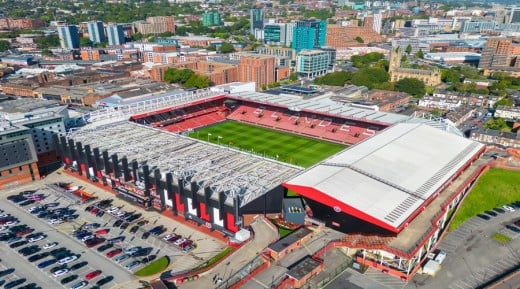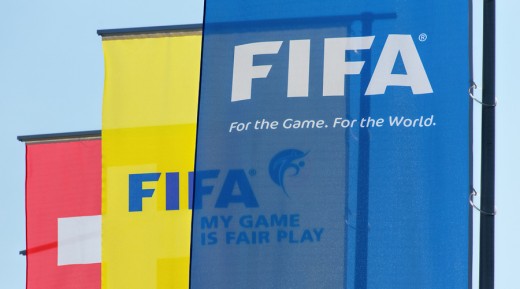European football leagues have evolved into a global phenomenon, shaping a dynamic and interactive football culture that captivates millions worldwide. Leagues like the Premier League, La Liga, Serie A, and Bundesliga combine rich history with modern innovation, offering fans new experiences such as esports football, data-driven match analysis, and fan-created content. Sports betting further deepens fan engagement, allowing predictions based on player performance and match statistics. UEFA and FIFA ensure fairness and transparency in this ecosystem, supporting the sport's sustainable growth. These advancements make European football more immersive and globally influential, redefining how fans connect with the game.
The Distinct Features and Impact of Europe’s Big 4 Football Leagues

European football’s Big 4 leagues—Premier League, La Liga, Serie A, and Bundesliga—stand as global icons of sport. Each league captivates fans with its unique style, storied clubs, and world-class talent. Beyond the pitch, they drive significant economic value, cultural influence, and innovation in the global sports industry, uniting fans worldwide.
Premier League: No.1 League
The Premier League, renowned for its competitiveness and global appeal, attracts top talent and fans worldwide. Generating over €6 billion in annual broadcasting revenue, it is a vital part of the UK economy. Governed by UEFA and FIFA, it sets benchmarks in transparency and fair play.La Liga: Passion and Precision
Home to legendary clubs likeSerie A: Tradition Meets Strategy
Serie A showcases Italian football’s tactical brilliance through historic clubs like AC Milan and Juventus. It not only enriches fans with strategic gameplay but also drives Italy’s tourism economy. Governed under UEFA’s regulations, Serie A represents the harmony of tradition and modern sports dynamics.Bundesliga: A Fan-Focused Model
The Bundesliga, known for its affordable tickets and high attendance, thrives as Europe’s most fan-centric league. It delivers €5.6 billion annually to Germany’s economy while emphasizing financial sustainability. Clubs like Bayern Munich epitomize efficient management and thrilling gameplay.
The Evolution of Sports Data and Fan Experience

A New Chapter in Football Fandom
Modern football fans are redefining what it means to support their favorite teams. No longer limited to simple cheering or watching matches, today’s fans embrace a multifaceted sports culture. This evolution is powered by advancements in technology and digital media, transforming how people experience and connect with the game.
From Living Rooms to On-the-Go Access
The days of relying solely on radios or traditional TV broadcasts are long gone. With the rise of smartphones, tablets, and laptops, fans can now watch matches anytime, anywhere. Whether commuting or relaxing at home, on-demand access ensures that every supporter can stay connected to their favorite teams and leagues, fostering a more inclusive and flexible sports experience.
Active Participation Beyond the Game
Modern fandom extends far beyond match day. Fans actively join clubs, purchase tickets for related games, and analyze match outcomes and player statistics. Many also enhance their engagement by participating in fantasy leagues or responsible online betting, using in-depth data analysis and insights. This analytical approach adds a strategic and interactive layer to the fan experience.
The Role of Trusted Platforms
Reliable platforms play a pivotal role in this evolving landscape. Verified sources of sports data and analysis offer fans a trustworthy foundation to enhance their understanding and enjoyment of the game. For instance, 'toto79.in'provides comprehensive sports insights, accurate data on safe betting platforms, and information on events and bonuses. By fostering a secure and informed environment, it enhances the enjoyment of online sports fans while empowering them with reliable resources to connect deeply with their favorite games.
The Role of International Football Organizations

UEFA: Guardians of European Football Excellence
The Union of European Football Associations (UEFA) is the backbone of European football. As the governing body, UEFA oversees prestigious tournaments like the UEFA Champions League and UEFA Europa League, which captivate millions of fans worldwide. Beyond organizing matches, UEFA ensures fair play, ethical practices, and the development of football across its 55 member nations. By setting financial regulations such as Financial Fair Play, UEFA balances competitiveness among clubs, preserving the integrity of the game.
FIFA: The Global Football Visionary
The Fédération Internationale de Football Association (FIFA) governs football on a global scale, connecting over 200 national associations. FIFA is best known for hosting the FIFA World Cup, the pinnacle of international football, which unites billions of fans. However, its mission extends far beyond tournaments. FIFA drives grassroots development, invests in football infrastructure, and champions gender equality in sports. By promoting inclusivity and fostering global talent, FIFA ensures football remains the world's most beloved sport.
ECA: Building Bridges Between Europe’s Clubs
The European Club Association (ECA) is a collective voice for over 240 professional clubs across Europe. Unlike UEFA and FIFA, the ECA directly represents the interests of clubs, focusing on collaboration and sustainable growth. From negotiating broadcasting rights to championing youth development, the ECA plays a pivotal role in shaping modern football. Its commitment to financial stability and innovation ensures clubs thrive while delivering thrilling experiences to fans.
Frequently Asked Questions (FAQ)

Q1: When does the season for Europe’s top 4 football leagues begin?
The football season for Europe’s top four leagues—Premier League, La Liga, Serie A, and Bundesliga—kicks off in August every year and runs through May of the following year. This 10-month journey is carefully planned to accommodate international tournaments and summer breaks. Fans can look forward to thrilling matches every weekend, featuring world-class players and intense competition. The season schedule has become a cherished tradition, offering football enthusiasts a consistent rhythm of excitement and entertainment.
Q2: Who are the top scorers in these leagues?
Each season, the leagues witness extraordinary goal-scoring feats. Legendary players like Lionel Messi and Cristiano Ronaldo have set benchmarks with their impeccable records and unmatched skills. Messi’s creative playmaking and Ronaldo’s powerful finishes have captivated millions. In recent years, rising stars like Erling Haaland and Kylian Mbappé have entered the spotlight, fueling fierce competition for the top scorer title. These players not only inspire fans but also push the boundaries of what is possible in football.
Q3: Where can I watch matches from Europe’s top leagues?
Watching matches from Europe’s top leagues is easier than ever, thanks to global broadcasting networks and digital streaming platforms. For example, the Premier League is available on NBC Sports and Amazon Prime Video, while La Liga and Serie A can be streamed on ESPN+. Bundesliga fans can catch live action on DAZN. Highlights and in-depth analysis are widely accessible on platforms like YouTube, offering fans flexible options to stay connected. Whether at home or on the go, football lovers have endless ways to enjoy their favorite teams and players.
The Future of European Football: Beyond the Game
The "Big Four" European football leagues—Premier League, La Liga, Serie A, and Bundesliga—are more than just competitions; they are cultural icons uniting fans worldwide. The Premier League’s commercial success, La Liga’s technical brilliance, Serie A’s strategic tradition, and Bundesliga’s fan-friendly approach each contribute to a global appeal. These leagues not only shape the future of football but also inspire innovation across the sports industry, demonstrating the power of collaboration, strategy, and community engagement.
The leagues' continued growth stems from strong organization and fan-first policies. Initiatives like fan zones connecting communities to stadiums, youth development programs, and engaging digital content highlight how sports can positively impact society. With advances in digital media and immersive technologies like AR, fans now experience matches more interactively than ever. European football will remain a global bridge, bringing cultures together and driving the evolution of sports as a shared human experience.
